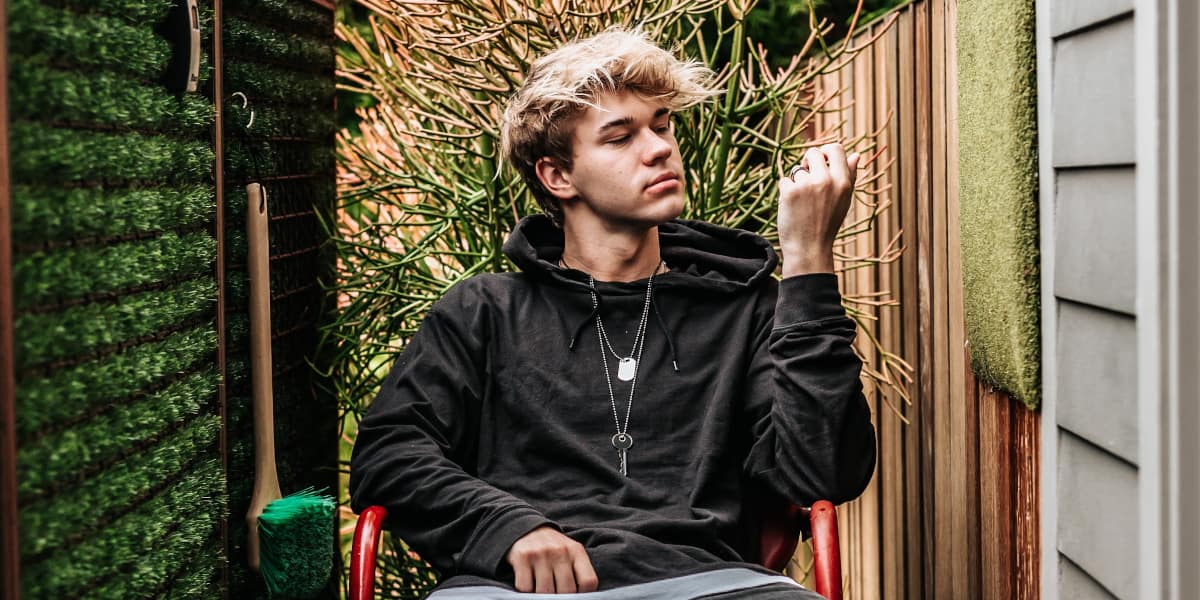Earl Grey Tea and Addiction – The Relationship Theory
If you have a family member with a drug, alcohol or any other form of addiction that is clearly a problem you will have tried to get them to stop, cut down or control. In the process of this you will have failed and found your self aghast at the persons in ability to see clearly what you can see. Often you will be asking yourself “am I going mad, or is it them”?
Addicts are always in denial. They have formed a relationship that is so totally encompassing of all of their faculties and experiences, that it is now a relationship, and it helps to understand what a relationship is.
Lets use a Tea as a method of demonstrating some of the factors of addiction in a way we can all empathise with.
I am not suggesting that Tea Drinking or Earl Grey are addictive, but rather a powerful relationship that often endures as long as life itself. When Twinnings changed the taste of its blended tea many people were upset and disturbed. The relationship was dramaticaly changed for ever, and could not be retrieved.
Addiction can be physical dependency. Drugs like caffeine, nicotine, heroin etc all create a tolerance and withdrawal reaction that means the best of us will become addicted to it at a clinical level. However, when presented with a powerful enough reason to stop, we can. We may feel the discomfort of the withdrawal symptoms which pass within few days , and then it is on with a normal life without looking over our shoulder and having a powerful desire to return to what was doing us harm. That is normal.
Addiction is always a psychological dependency. “Aahh , a nice cup of tea, what a relief”.
Twinings the well-known tea manufacturer recently took it upon themselves to change the make-up of their long established and very popular earl grey variety of tea. This gives us an opportunity to understand some of the factors related to psychological addiction, which in turn may well empower family or friends of people with an addiction to understand a little bit more of what is going on.
Just for a moment let’s assume that you have acquired a taste for earl grey tea. Actually, you probably have not acquired a taste but rather a relationship with all aspects of the tea. The taste is the identifier and represents all of the other factors of experience. The other factors are the timing of taking the tea, the heat, sweetness of the tea, the cup used and method of preparation. There are many factors, but taste is crucial. “Aahh, now that’s a nice cup of tea”. You feel the experience, you plan for it, you rely upon it, and are always disappointed when it fall short of expectation.
When we think of experience we should always break it down into three major components.
Behavioural. However we are acting and behaving. Breathing, body language and all aspects of the physical.
Emotional. Pleasure or pain. Happy or sad. Content or anxious.
Cognitive. How we talk to ourselves, our self talk. Self alibi statements, rationalisations, internal explanations. Opinions and views.
- “Have a nice cup of tea. I always like a nice cup of tea when I get home from work it helps me to relax after the stresses and strains of the daily journey. It creates a buffer between the trials and tribulations of the working day and my evening.(Cognitive)
- I put on the kettle, go and get changed, turn on the telly . I rinse my favourite cup, and warm the pot. I always make sure I pour boiling water onto the tea and leave it to sit for 3 minutes. (Behavioural)
- The first sip is too hot.. perfect. The taste is familiar, reassuring pleasant and predictable. I feel the pressure of the day evaporate and my shoulders relax, I sink into the chair and feel relief. “Yes a nice cup of Earl Grey ticks all the boxes.” (Emotional)
In the example above the persons brain has mapped and developed and hard-wired a predictable and controllable cognitive behavioural emotional relationship with a cup of tea. The whole experience culminates in a controlled and planned feeling which is dependent in all of the components being present. All of the elements come together for a moment of pure bliss and serenity and freedom.
The simple statement “I always like a nice cup of tea when I get home” is evidence of the relationship. With the rigidity of all of those components there will be many times when they do not combine for the euphoric moment. The phone may ring, there may be commitment that means there is no time to sit on the sofa etc, but they’re all variables which in time will return for the opportunity to create a desired euphoric perfect cup of tea moment. The person will accept these problems knowing that the opportunity for the choice feeling is still available.
When Twinnings changed the blend of the Tea and removed availability of the original they ended for ever that learned and acquired moment. They created a factor that permanently stopped the ability to reach the desired and known feeling.
The taste of the moment was a lot more than the taste of the tea leaves, but totally depended on this crucial familiar element. All of a sudden the preprogrammed and hard wired experience within the human brain could no longer fulfil all the components of the moment. By changing the taste of the Tea all of the other follow on feelings and thoughts were interrupted and changed for ever. No amount of jiggery- pokery with the preparation process could recreate the mood that was previously so predictable.
Maybe Twinings are expecting new experiences to be developed and found to be hard-wired and embedded into their customers experience. In truth this will probably happen.
Slowly but surely people adapt to the experience. The start to create a self talk and alibi system to support and work towards the desired effect. If you can ride a bike, try unlearning how to ride a bike. The fact is we have memory of a relationship that will never go away. If at any point in the future somebody would turn up at the right moment with a cup of Earl Grey tea then that person would be transported back to that moment of euphoric soporific serene bliss. Just recall how a smell or a record playing on the radio can transport you to a time and place instantly. The mind hardwires the memory, which in turn still triggers the chemicals that create feelings.
Drugs/alcohol/gambling often appear to be bad in the hands of somebody with an addictive personality when they are acting out in an unmanageable problematic way. Many times friends and family will argue to stop using the drink or drugs or to cut down the control. They will suggest intellectual arguments that seem valid.
“You will lose your wife….,”
“don’t you realise that you have a great job…”
“It is the best university, it will set you up for life…”
The intellectual arguments miss the point. The dependent person has an emotional relationship, a behavioural relationship and a thought based relationship that has totally integrated this drug use. The will need effective treatment addressing the whole relationship in order to be free of the dependency, and the new relationship will have to be an improvement over the old one. ( I bet there are many Twinnings Tea customers who swear the new Earl Grey is much better than the old)
RedChair family interventions provide you with a tool to help take a person into treatment program. A good treatment program is able to create new brain mapping . The person and has a choice. They can either live in the safety of active recovery, or they can go back to the active addiction. A bit like riding a bike, you can never forget, and therefore it really is a choice. A Family Intervention creates all the elements required for a person to feel safe enough to take treatment.



